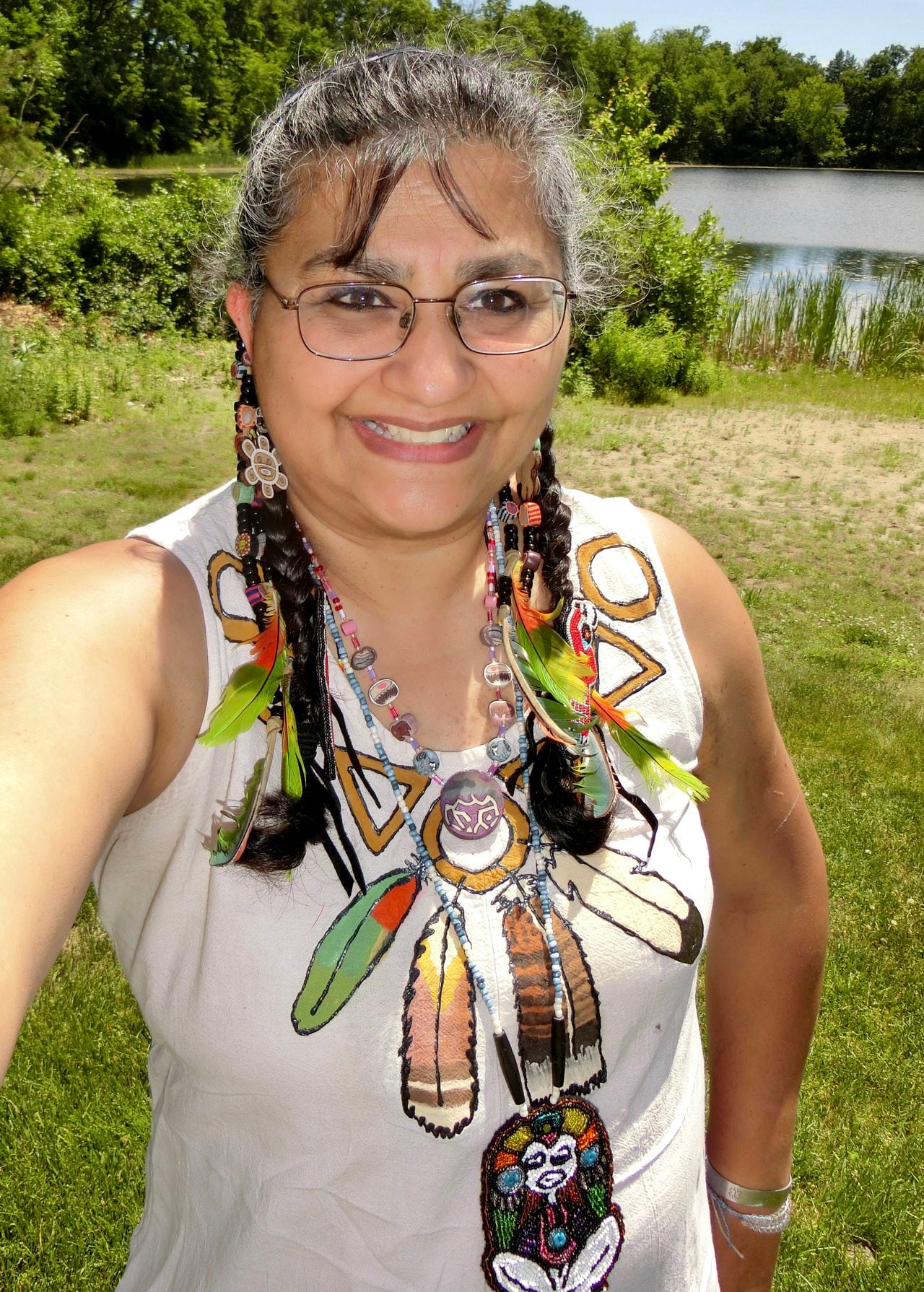In recognition of Native American Heritage Month in November, MassLive asked readers to identify people who are leaders from the Indigenous community throughout the state, working to make a difference in their own area of interest, be it politics, education, business or the arts.
MassLive will publish profiles of these leaders through November. These are people our readers have identified as inspirational, who may be doing good acts for their communities. They are being recognized for their accomplishments, leadership and commitment to inspire change.

Claudia A. Fox Tree works in education to teach about Indigenous history and culture, reframing narratives about Native Americans and working toward a more equitable society for all. (Photo courtesy of Claudia A. Fox Tree, self-submitted photo)Claudia A. Fox Tree
Claudia A. Fox Tree
Age: 59
Community: Fox Tree said she lives and works on the lands of the Pawtucket, Agawam and Massachusett peoples near the traditional Shawshin River area around Greater Boston. She is also a special education teacher in the Lincoln Public Schools.
Her Story: Growing up Claudia Fox Tree split her time between Concord, Mass., and Germany. Her Arawak father met her German mother — a chemist — while he was studying art in the city of Marburg following the Korean War.
Considering herself multiracial and multiethnic, Fox Tree said she didn’t see the name of her Indigenous nation in print until the time when she was in college. While she grew up within the local Indigenous community of Massachusetts and connected to her tribal community through the United Confederation of Taino People (UCTP), she said she wanted to ensure a different experience for her children and peers.
So Fox Tree became a middle school teacher, with additional work in a social justice organization facilitating workshops and teaching graduate classes on bringing equitable curriculum and practices into classrooms, she said.
Fox Tree said she spends time teaching fellow educators about racism in the United States through a “decolonizing lens,” such as examples of “Indian Removal” throughout American history from the arrival of Christopher Columbus in 1492 to other major developments such as the Louisiana Purchase, the California Gold Rush and the Homestead Act.
“We hear about those pieces of history, but the Native American perspective is often missing,” Fox Tree said, noting events such as these precipitated vast loss of land holdings by Indigenous Americans and large reductions in Indigenous populations as well.
Nowadays, Fox Tree said that 8.75 million people nationwide identify as American Indian or as Alaska Native, and that people from Indigenous cultures still carry tens of thousands of years’ worth of cultural knowledge on the land, plants, animals and climate of the Americas — who she added today’s society can learn much from and regain this knowledge from.
Fox Tree also cited the many contributions Native Americans have made to U.S. and world culture through agricultural techniques — as many foods the world knows and loves originate in the Americas — to science — such as astronomy and the act of controlled burning — to inventions — such as the hammock and the sport of lacrosse — as well as many notable place names.
Fox Tree said she works to counter “the invisibility” of Indigenous people, stating that they are often spoken of in the past tense, “like we are all gone,” and yet their contributions persist.
As a board member of the Massachusetts Center for Native American Awareness (MCNAA), a liaison with UCTP and a tribal council member with Taino iukaieke Guainia, Fox Tree works with fellow Indigenous leaders and scholars to educate others.
Together she and other scholars wrote the “21-Day Racial Equity Indigenous Challenge — Fighting White Supremacy Since 1492″ in which participants choose one “read, watch, notice, listen, connect, engage, act, or reflect” activity each day for three weeks, according to Fox Tree.
“Individuals do the challenge with a group, within a family or with colleagues, and then check in once or twice a week, to share and discuss new learnings,” she added.
In Her Words: “In doing the work of social justice, remember it was never 100%. It wasn’t 100% of women who wanted the right to vote. It wasn’t 100% of Americans who wanted to end enslavement of human beings. However, it was indeed enough committed folks who worked within the system they knew. We don’t need everyone; we just need enough who won’t give up.”
We’re always open to hear about more inspiring people. If you’d like to suggest someone else who should be recognized, please fill out this form.





